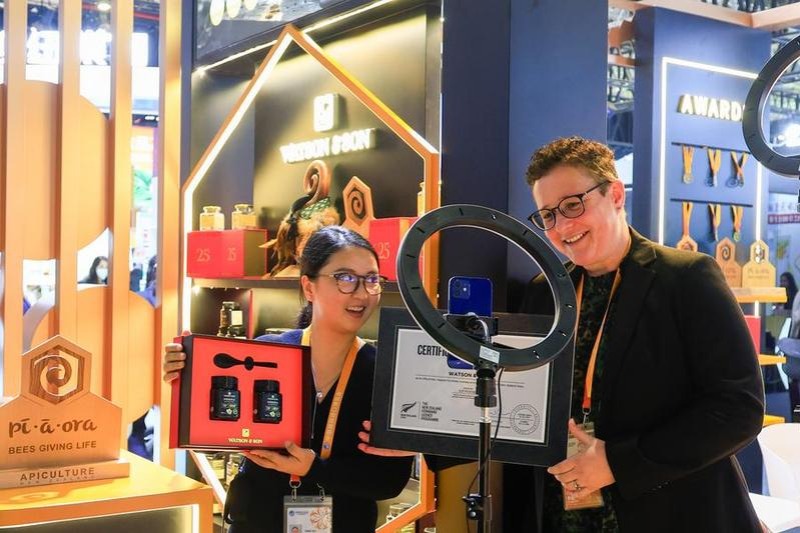Toyota turns to Chinese partners to get green options going
China Daily | Updated: 2021-12-06 10:42

Toyota Motor Corp will launch an all-electric small sedan in China late next year, having turned to local partner BYD for key technology to make an affordable yet roomy runaround, sources told Reuters.
Two of the four people with knowledge of the matter described the car as an electric Holy Grail for Toyota, which has struggled for years to come up with a small EV that is both competitive on cost in China and doesn't compromise on comfort.
The sources said the breakthrough was chiefly down to BYD's less bulky lithium-iron-phosphate (LFP) blade-shaped batteries and its lower-cost engineering know-how-a turning of the tables for the Chinese company whose popular F3 saloon was inspired by Toyota's Corolla back in 2005.
Little known outside China at first, BYD hit the headlines in 2008 when Warren Buffett bought a 10 percent stake. It has since become one of the biggest manufacturers of new energy vehicles in the world.
Toyota's new EV will be slightly bigger than its compact Corolla, the world's bestselling car. One source said to think of it as "a Corolla with bigger back-seat section".
It will be unveiled as a concept car at the Beijing auto show in April. Then it most likely will be launched as the second model in Toyota's new bZ series of all-electric cars, even though it will only be on sale in China at first.
"The car was enabled by BYD battery technology," one of the sources told Reuters. "It has more or less helped us resolve challenges we had faced in coming up with an affordable small electric sedan with a roomy interior."
It will be pitched below premium EVs such as Tesla's Model Y or the Nio ES6 but above the ultracheap Hongguang Mini EV, which starts at just $4,500 and is now among China's bestselling electric vehicles.
Two of the four sources, all of whom declined to be named because they are not authorized to speak to the media, said the new Toyota would be priced competitively.
One said it would likely sell for under 200,000 yuan ($30,000), aiming for a segment of the Chinese market Tesla is expected to target with a small car within the next two years.
"We don't comment on future products," a Toyota spokesperson said. "Toyota considers battery electric vehicles as one path to help us get to carbon neutrality and is engaged in the development of all types of electrified vehicle solutions."
A BYD spokesperson declined to comment.
When the quality of Chinese vehicles was considered below par, global automakers were not too concerned that they couldn't compete on price and left Chinese companies to control the domestic market for cheap, no-frills cars. But times have changed.
Toyota executives started to worry back in 2015 when BYD launched its Tang plug-in hybrid, with significant improvements in styling, quality and performance. Most importantly, it was about 30 percent cheaper than comparable Toyota models.
Two of the sources said the BYD evaluations pushed Toyota to create its research and development joint venture with BYD last year. Toyota now has two dozen engineers in Shenzhen working side-by-side with about 100 BYD counterparts.
Toyota's new EV comes at a time when it is under fire from environmental groups that maintain it is not committed to zero emissions. They say Toyota is more interested in prolonging the commercial usefulness of its successful hybrid technology.
Toyota executives say they're not against battery electric vehicles but argue that until renewable energy becomes more widely available, they won't be a silver bullet for slashing carbon emissions.
Nevertheless, Toyota has set up division in Japan dedicated to zero-emissions cars called ZEV Factory. It is developing safer and lower-cost battery technologies, including solid-state lithium-ion cells which would significantly boost an EV's range.
While Toyota has long advocated a runaround that doesn't compromise on comfort as the best way to popularize BEVs, it has struggled to produce such a car.
One problem stems from the need to stack bulky, heavy batteries under the floor. They eat up the interior space unless the roof is raised too-which is why many smaller EVs are SUVs.
In 2018, Toyota briefly explored the idea of a battery venture with BYD. That and subsequent interactions led Toyota's engineers to come across BYD's LFP blade-shaped battery. They described it as a game-changer because it was both cheaper and freed up space. BYD officially launched its blade-shaped battery in 2020.
LFP batteries have a lower energy density than most other lithium-ion cells but are cheaper, have a longer shelf life, are less prone to overheating and don't use cobalt or nickel. Tesla uses LFP batteries in its Model 3 and Model Y in China.
One of the sources said a typical blade pack is about 10 centimeters thick when the modules are laid flat on the floor, roughly 5-10 cm thinner than other lithium-ion packs.
A BYD spokesperson said it was possible, depending on how an automaker packages the blade-shaped battery in a car.
Reuters
























